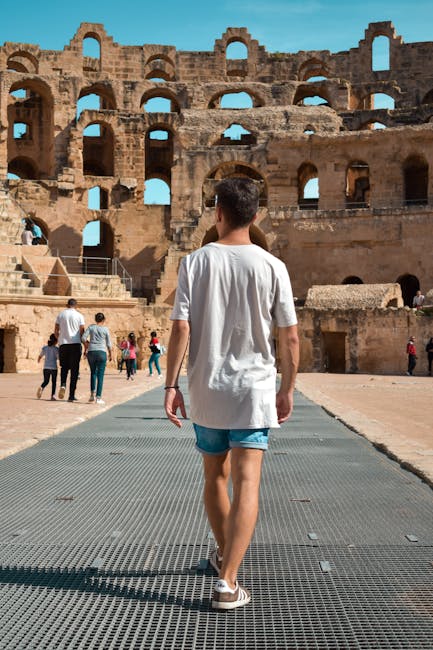


 Tunisia
Tunisia
Tunisia is a great travel destination for those looking to explore the culture and history of North Africa. With its stunning Mediterranean coastline, ancient ruins, and vibrant cities, Tunisia offers something for everyone. From the bustling capital of Tunis to the picturesque towns of Sidi Bou Said and Hammamet, visitors can explore a variety of attractions. The country is also home to some of the best beaches in the region, with plenty of opportunities for swimming, snorkeling, and other water sports. For those looking to experience a more traditional side of Tunisia, there are plenty of opportunities to explore the country’s rich cultural heritage through its many museums and archaeological sites. Whether you’re looking for a relaxing beach holiday or an exciting adventure, Tunisia has something for everyone.
Activities: Surfing, Stand-up paddle boarding, Windsurfing, Canoeing, Rafting, Snorkeling, Skiing, Mountain biking, Hiking, Camping, Rock climbing
Landscapes: Beaches, Deserts, Canyons
Topics: Cities, Nature, History, Festivals, Backpacking, Adventure
Is Tunisia expensive?
Tunisia currency
د.تTunisian dinar (TND)
Weather in Tunisia
Tunisia has a Mediterranean climate, with hot, dry summers and mild, wet winters. The average temperature in summer is around 30°C (86°F), while in winter it can drop to around 10°C (50°F). Rainfall is generally low throughout the year, but there are occasional heavy downpours during the winter months. Tunisia also experiences strong winds from the Sahara Desert, which can make the weather even hotter in summer.
- Yearly temperature range: 7°C - 36°C
- Monthly rainfall range: 3mm - 40mm
- Daily sunshine range: 6h - 13h
Traveling Tunisia
Transportation
Tunisia has a well-developed transportation network, including buses, trains, taxis, and rental cars. The most popular way to get around is by bus, which is both affordable and convenient. Trains are also available for longer distances, and taxis are available in major cities. Rental cars are also an option for those who want more freedom to explore the country.
Is Tunisia safe?
Crime
Tunisia is generally a safe country to travel in, and the crime rate is relatively low. Petty theft such as pickpocketing and bag snatching can occur in crowded areas, so it is important to be vigilant with your belongings. Other crimes such as fraud, extortion, and drug trafficking are also present but are not common. It is important to be aware of your surroundings and take precautions when traveling in Tunisia.
Travel advisory
3/5Tunisia has a current risk level of 3 (out of 5). We advise: Use some caution when travelling Tunisia.Last updated: Thu Mar 23 2023
Health
Health Considerations
Travellers to Tunisia should be up to date with routine vaccinations, including measles-mumps-rubella (MMR) vaccine, diphtheria-tetanus-pertussis vaccine, varicella (chickenpox) vaccine, polio vaccine, and your yearly flu shot. Additionally, travellers should consider getting vaccinated for hepatitis A and typhoid. Mosquito-borne illnesses such as malaria and dengue fever are present in some areas of Tunisia, so travellers should take precautions to avoid mosquito bites. It is also recommended that travellers bring a medical kit with them in case of any minor illnesses or injuries.
Food and Water Safety
Travellers should be aware that food and water safety standards may not be the same as those in their home country. It is recommended that travellers only drink bottled or boiled water and avoid eating raw or undercooked foods. Travellers should also be aware of the risk of food poisoning from street vendors.
Tunisia customs and etiquette
Be Respectful of Local Customs
Tunisia is a predominantly Muslim country, so it is important to be respectful of local customs and traditions. This includes dressing modestly, avoiding public displays of affection, and refraining from drinking alcohol in public.
Be Aware of Political Sensitivities
Tunisia is a politically sensitive country, so it is important to be aware of current events and avoid discussing politics or making any inflammatory statements.
Be Courteous to Locals
Tunisians are generally very friendly and welcoming people, so it is important to be courteous and polite when interacting with locals.
TP
Copyright 2023